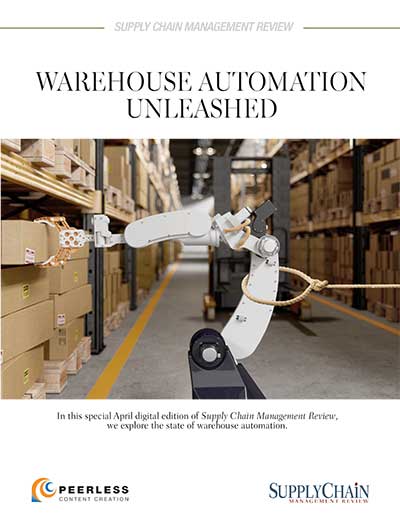The retail industry revamped to meet the new demands of consumers brought on by COVID-19. New research released recently by the Retail Industry Leaders Association (RILA), with support from its knowledge partner McKinsey & Company, offers in-depth insights shaped by leading retail CEOs into the imperatives that will be critical to retail success moving forward.
“Every retailer, to some degree, has long had a sense of what the future of retail could look like… But the future came early,” the report states.
“While the fundamentals are largely unchanged, customers’ expectations are now exponentially higher and retailers are rising to the challenge,” said RILA President Brian Dodge. “Leading retailers are embracing the opportunity to win new customers by leveraging lessons learned from the past year and investing in strategies to serve customers well wherever and whenever they shop.”
Retail Speaks: Seven Imperatives for the Retail Industry was developed with the support of McKinsey & Company as a knowledge partner and identifies seven imperatives for rethinking retail.
1. Consumers now demand a seamless omnichannel experience: Consumers will choose retailers based on ease and richness of end-to-end experience.
2. Personalized shopping experience is now table stakes: Most retailers fall short of these expectations today. While 100 percent of top-quartile retailers cited omnichannel personalization as a top five priority, only 15 percent of retailers have fully implemented personalization across all channels.
3. Turbocharge e-commerce delivery: The vast majority of consumers—over 90 percent—see two to three days as the baseline, and 30 percent expect same-day delivery. Retailers are setting ambitious targets for delivery times that will require significant investments to propel their supply chain fulfillment capabilities.
4. Purpose-driven approach to ESG is essential: Consumers are voting with their wallets for sustainability and broader purpose. One-third of survey respondents reported they had stopped using a brand based on its social actions, and 71 percent indicated they would lose trust in a brand forever if it placed profits over people. At the same time, consumers are willing to pay more for products that meet their values.
5. Recalibrate talent strategies: Retailers typically need to augment their workforce and capabilities to thrive in the digital-dominated world. To close the skills gap, companies will need to reimagine their strategies for sourcing and deploying talent—focusing on upskilling, new recruitment models, and diverse talent pools.
6. Explore the role of partnerships and ecosystems: The development of partnerships and ecosystems, especially those convened by retailers, will accelerate. McKinsey analysis suggests that ecosystems could collectively function as a $60 trillion economy by 2025. That makes developing an engagement strategy an imperative for survival: even if retailers aren’t positioned to establish their own ecosystem, they will have to figure out how to compete, participate, or coexist.
7. Seek transformational productivity gains: Retail as a sector has achieved outsized productivity growth over the past ten years. The next phase will involve deploying analytics and automation across P&L. Retailers will need to prioritize investments that are truly transformational.
In reference to the changing retail landscape, Sajal Kohli, a Senior Partner at McKinsey & Company, and head of McKinsey’s Global Retail and Consumer Packaged Goods practices said, “the arrival of COVID 19 in March 2020, which shut down retailers across the country and forced consumers to change buying behaviors, rapidly accelerated the trajectory of retail evolution, leading to more transformation in a year than has been seen in the industry in the last few decades.”
The report is the result of a benchmarking survey conducted with executives (such as CFOs, chief marketing officers, chief digital officers, and chief supply chain officers) from 30 U.S. companies, augmented by in-depth interviews with top retail CEOs, as well as proprietary McKinsey & Company customer research.
Key Stats:
• Post-COVID-19 e-commerce penetration is expected to significantly increase to 25–40% across categories.
• E-commerce volumes grew as much in the first quarter of 2020 as they did in the previous 10 years.
• Leading retailers plan to increase hiring for e-commerce/data roles by 70 percent through 2022
• More than 75% of specialty retail supply chain leaders have made two-day delivery a priority, and 42% hope to offer same-day delivery by 2022.
• 80% of retailers plan to concentrate their 2022 supply chain spending on addressing e-commerce fulfillment.
• 80% of retailers believe company actions matter to consumers, and 64% believe those actions affect purchase decisions.
• 6 of the 7 global companies with the highest market caps participate in ecosystems.
SC
MR

Latest Supply Chain News
- Tech investments bring revenue increases, survey finds
- Survey reveals strategies for addressing supply chain, logistics labor shortages
- Israel, Ukraine aid package to increase pressure on aerospace and defense supply chains
- How CPG brands can deliver on supplier diversity promises
- How S&OP provides the answer to in-demand products
- More News
Latest Resources

 Explore
Explore
Business Management News
- Survey reveals strategies for addressing supply chain, logistics labor shortages
- How CPG brands can deliver on supplier diversity promises
- How S&OP provides the answer to in-demand products
- AI, virtual reality is bringing experiential learning into the modern age
- Tips for CIOs to overcome technology talent acquisition troubles
- There is still work to do to achieve supply chain stability
- More Business Management
Latest Business Management Resources

Subscribe

Supply Chain Management Review delivers the best industry content.

Editors’ Picks





